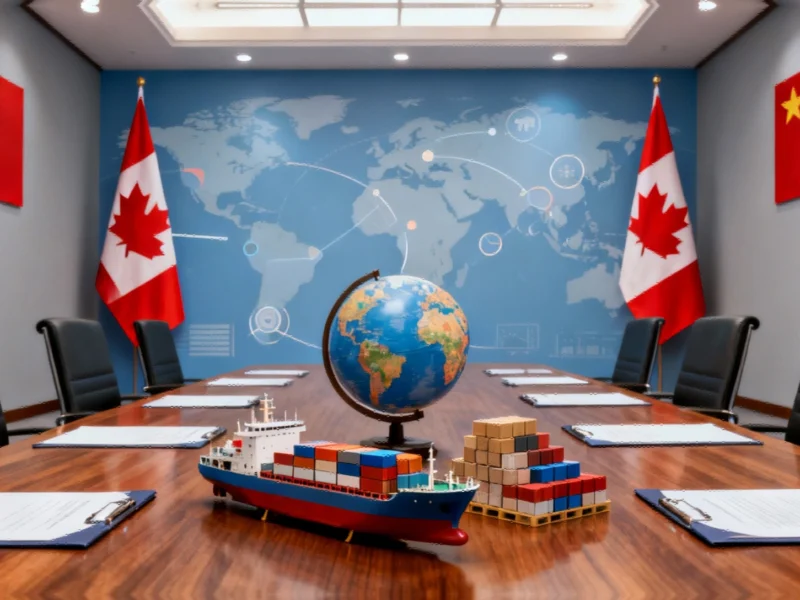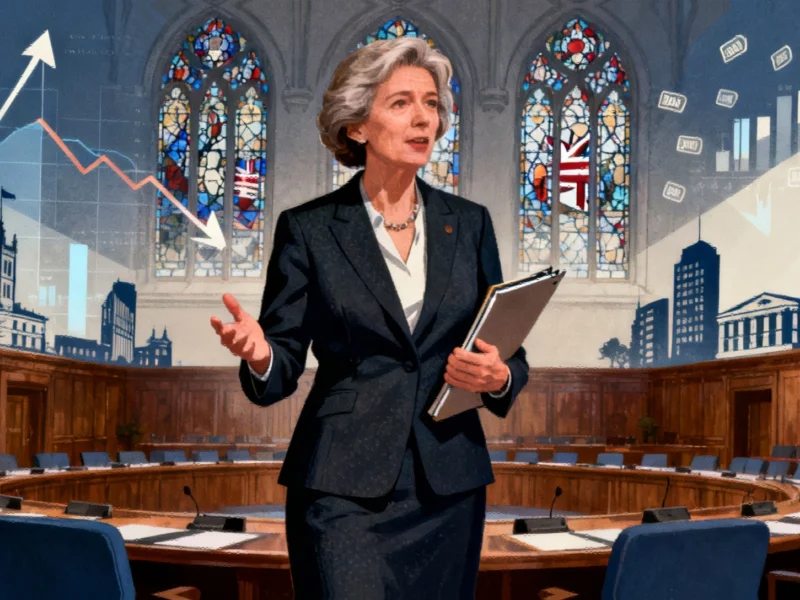In a significant diplomatic development, Chinese Foreign Minister Wang Yi announced Beijing’s readiness to resume comprehensive dialogue with Canada across all government levels during Friday’s high-level meeting with Canadian counterpart Anita Anand. The carefully choreographed announcement signals a potential thaw in bilateral relations following periods of diplomatic friction.
According to the official Chinese readout from the Beijing meeting, Wang emphasized that China seeks to “enhance communication, eliminate interference and rebuild mutual trust” with Ottawa. The foreign minister’s comments come amid broader Chinese diplomatic initiatives aimed at strengthening international partnerships during a period of global uncertainty. Wang specifically noted that both nations should work toward resolving “each nation’s legitimate concerns” through renewed engagement.
The Chinese foreign minister framed the proposed dialogue expansion within the context of global governance challenges, stressing that Beijing and Ottawa should “jointly defend multilateralism and the international trade order.” This positioning reflects China’s ongoing efforts to position itself as a stabilizing force in international affairs, particularly as other global powers navigate domestic political transitions that could impact foreign policy directions, including recent healthcare policy developments in Western markets.
Strategic Timing and Economic Context
The diplomatic overture occurs against a backdrop of evolving global economic dynamics, including shifting supply chain patterns and technological competition. Wang’s emphasis on trade order maintenance suggests Beijing recognizes the importance of stable relations with G7 nations like Canada amid broader economic realignments. The timing appears strategic, coinciding with increased international business activity in sectors ranging from electric vehicle manufacturing facing quality control challenges to telecommunications infrastructure expansion.
Canadian officials have yet to release their detailed account of the meeting, but observers note that Anand’s visit represents the highest-level Canadian diplomatic engagement with China in recent months. The discussions likely addressed specific bilateral irritants while exploring areas for potential cooperation, including climate change and Arctic governance where both nations maintain significant interests.
Broader Implications for International Relations
China’s willingness to restart comprehensive dialogue with Canada reflects Beijing’s calibrated approach to managing relationships with Western nations. Rather than employing uniform strategies, Chinese diplomacy appears increasingly tailored to specific bilateral contexts and opportunities. This nuanced approach comes as global infrastructure sectors witness significant transformations, including telecommunications companies restructuring their international asset portfolios to adapt to new market realities.
The emphasis on “eliminating interference” in the Chinese statement likely references previous diplomatic disputes, including the detention of Canadian citizens in China and ongoing human rights concerns. However, the generally constructive tone suggests both sides may be seeking to compartmentalize contentious issues while rebuilding cooperation in less politically charged areas.
Potential Areas for Bilateral Cooperation
Industry analysts suggest several sectors could benefit from renewed Sino-Canadian engagement:
- Clean Energy Technology: Collaboration on critical minerals development and renewable energy infrastructure
- Agricultural Trade: Expanding Canadian exports to Chinese markets amid global food security concerns
- Academic and Scientific Exchange: Rebuilding research partnerships paused during the pandemic and diplomatic tensions
- Climate Governance: Coordinated approaches to Arctic development and environmental protection
The success of these potential cooperation areas will depend on whether both nations can establish working-level dialogue mechanisms to translate high-level political willingness into concrete outcomes. The coming weeks will reveal whether Canada reciprocates China’s enthusiasm for comprehensive engagement or maintains a more cautious approach to the relationship.
Friday’s meeting represents the most explicit Chinese invitation for normalized relations with Canada since diplomatic ties soured in recent years. How Ottawa responds to Beijing’s overture will significantly influence not only bilateral relations but also China’s broader engagement strategy with Western democracies amid an increasingly multipolar global order.
Based on reporting by {‘uri’: ‘reuters.com’, ‘dataType’: ‘news’, ‘title’: ‘Reuters’, ‘description’: ‘Reuters.co.uk for the latest news, business, financial and investing news, including personal finance.’, ‘location’: {‘type’: ‘place’, ‘geoNamesId’: ‘2643743’, ‘label’: {‘eng’: ‘London’}, ‘population’: 7556900, ‘lat’: 51.50853, ‘long’: -0.12574, ‘country’: {‘type’: ‘country’, ‘geoNamesId’: ‘2635167’, ‘label’: {‘eng’: ‘United Kingdom’}, ‘population’: 62348447, ‘lat’: 54.75844, ‘long’: -2.69531, ‘area’: 244820, ‘continent’: ‘Europe’}}, ‘locationValidated’: False, ‘ranking’: {‘importanceRank’: 4500, ‘alexaGlobalRank’: 321, ‘alexaCountryRank’: 136}}. This article aggregates information from publicly available sources. All trademarks and copyrights belong to their respective owners.



